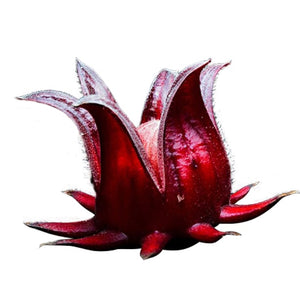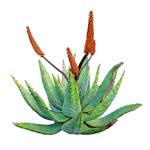Plant Science 101
Plants are the basis of all life, from the food we eat to the oxygen we breathe to the fibers and materials that clothe and house us. Plants are vital for human well-being, as countless studies on medicinal plants, plant-based diets, skincare, and nutrition have shown. Recent scientific studies have even uncovered a kind of plant intelligence — new tools measuring how plants communicate, share resources, and even show a form of empathy. We’re not joking. Our minds are as blown as yours.



Biodiversity
The plant world has an astounding variety of species (over 400,000, to be precise); many scientists believe the true number is much higher than that. Sadly, 68% of these plant species are at risk of extinction due to the destruction of native habitats (mostly to make room for cattle grazing, industrial agriculture, logging and mining activity) and climate change.
LXMI fights to promote biodiversity by creating conservation incentives — financial incentives for local communities to preserve wild plants and land — in partnership with fair-trade and organic-certified suppliers. Biodiversity is critical to our well-being: imagine what incredible healing remedies may be lost when we cut down a forest before we can study it!
LXMI PLANT RESEARCH
LXMI’s plant research is based on the clinical effectiveness of rare botanicals that often don’t make it into mainstream skincare. Our research focuses on four areas:
- Clinical efficacy - scientific studies that document a plant’s scientific benefits using clinical trials and independent subjects
- Ethnobotany - how local people use a plant, and how it links to their culture, traditions, and livelihoods
- Biodiversity - the many local varieties or sub-species of a plant that might contain different or more beneficial properties, such as Nilotica vs. shea butter
- Terroir - the conditions in which a plant is grown, including the soil microbiome and soil, water and air quality
TERROIR FOR SKINCARE?
Imagine how different your farmstand's heirloom tomato tastes from its store-bought counterpart, or how different an $11,000 bottle of rare Le Musigny Pinot Noir and a $2 bottle of Charles Shaw taste — not all tomatoes and red grapes are the same.
Terroir , used in the wine industry to differentiate vines, refers to the quality of the air, soil, water, and sun a plant grows in. Studies have confirmed that variations in terroir can lead to huge differences in the levels of bioactive molecules that carry skincare benefits in a plant.
How is this the case? Our environment is extremely complex. Soil, water and air aren’t static — they’re impacted by agricultural use of fertilizers, pesticides, and herbicides, and by human activity. One study found that a single chemical, the plastic additive bisphenol-A (that dreaded BPA), is a source of the compounds in our water supply responsible for irregularities in human hormone level. Chemical run-off from industrial agriculture has been documented for many decades and has been linked to birth defects, cancer, and other widespread health problems.
Plants can concentrate these toxins in their tissues, making their way into your refrigerator and skincare cabinet.
Not only does chemical contamination increase toxicity, it also impacts the delicate balance of the soil and water. Soil has a microbiome just like your gut does — this balance of beneficial bacteria and living organisms increases nutrient absorption by plants, making them more biologically active. A healthy soil microbiome equates to more concentrated bio-actives in the plants